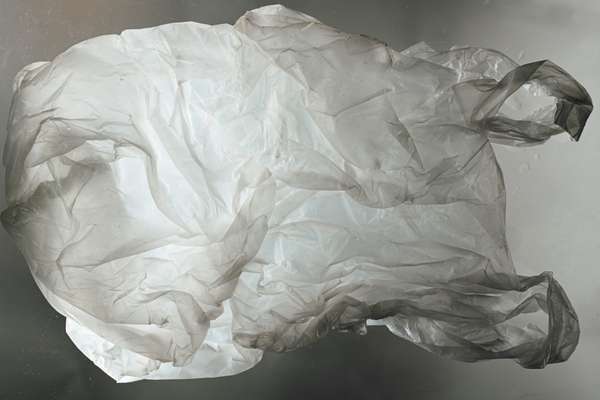
Remember when dropping your soft plastic bags into that bright red bin at the supermarket felt like doing your bit for the planet?
Well, those days might be coming back—but this time, you could be paying extra at the checkout for the privilege.
Major supermarkets Coles, Woolworths, and Aldi are pushing a new recycling scheme that promises to clean up the mess left by the spectacular collapse of REDcycle. But environmental advocates warn the fine print reveals who's really calling the shots—and who's likely to pay the price.
In this article
The $16 million disaster that shook Australia
REDcycle collapsed in 2022, leaving behind an estimated 11,000 tonnes of stockpiled soft plastic across 44 locations in Australia, after it was discovered that instead of being recycled the soft plastics were stockpiled in several warehouses across New South Wales, South Australia and Victoria causing an environmental and fire risk.
What happened to REDcycle?
REDcycle was an industry-led program developed and implemented by the RG Programs and Services Pty Ltd, a Melbourne-based consultation and recycling organisation. Since 2011, it had been the only return-to-store, soft plastics recovery program in Australia, operating in nearly 2000 supermarket outlets across the country, with collection points in Coles and Woolworths supermarkets, and more recently since July 2022, in ALDI stores.
The collapse came after a 300 per cent increase in collection volumes since 2019 was colliding with a dramatic reduction in recycling capacity. This was accompanied by a pandemic-induced downturn in demand for recycled products, leading to plastic being stockpiled. A fire at the premises of Close the Loop, REDcycle's largest processing partner, is considered a key reason for the loss in demand that led to the end of the pioneering scheme.
For millions of Australians who'd been diligently collecting their bread bags and chip packets, the collapse of RedCycle in November 2022 was a shock revelation for many Australians who had been diligently separating their soft plastics to return to their local supermarket for collection. Even more galling was discovering that less than five per cent of consumer soft plastic was collected by the REDcycle program despite the widespread promotion.
The supermarkets stepped in to clean up the mess, assuming responsibility for the REDcycle stockpiles in February 2023. But now they want that $16 million back—and they've got a plan for how to get it.
The new scheme: Who pays and who profits?
The Soft Plastics Stewardship Australia (SPSA) plan being considered by the ACCC would charge companies a levy for every piece of soft plastic packaging they put on shelves. Starting at one cent per item, the fee would climb to four cents over several years.
'The core feature of the voluntary scheme, which really entices the brands to come on, is that they can pass the cost on'
But here's the rub: there's nothing stopping those costs from being passed straight to consumers. Kirsty Bishop-Fox from Zero Waste Victoria warns shoppers shouldn't be surprised if these fees end up 'baked into the price of groceries.'
Example Scenario
- Consider your typical weekly shop: If you buy 50 items with soft plastic packaging (bread, cereal, frozen vegetables, biscuits, etc.), you could be looking at an extra 50 cents to $2 per week once the scheme is fully implemented. That's potentially $25-100 per year in additional costs for an average household—money that goes toward fixing a problem the companies created in the first place.
The scheme's structure raises serious questions about accountability. Unlike aluminium recycling, where the material has genuine value, it often costs more to recycle most plastics than to just throw them away. This fundamental economic reality drives the need for the levy—but it also explains why companies are eager to shift these costs elsewhere.
A scheme designed by supermarkets, for supermarkets
Perhaps most concerning is who's running the show. The SPSA board would include supermarket and manufacturer representatives alongside just two independent members. For critics like Bishop-Fox, this raises red flags about whether the scheme truly serves the public interest.
'They're not talking about what they're doing to reduce plastic, and we know that people are frustrated going shopping and seeing plastic that they can't avoid,' she pointed out. The scheme focuses entirely on recycling without any binding commitments to reduce plastic packaging at the source.
Key concerns about the new scheme
- No regulatory oversight—companies 'literally make the rules'
- Costs likely to be passed to consumers at checkout
- Industry-controlled board with minimal independent oversight
- No commitments to reduce plastic packaging
- Only covers post-consumer waste, ignoring supply chain plastics
- Supermarkets seeking to recover their $16 million REDcycle cleanup costs
This is particularly significant given Australia's plastic consumption habits. According to research by the Minderoo Foundation, Australians generate more single-use plastic waste per capita than any other country in the world—about 60 kilograms a year. According to the government's National Plastics Plan, Australia goes through 70 billion pieces of soft plastics each and every year—that's almost 3000 pieces per person.
International lessons we're ignoring
Other countries have taken different approaches to the plastic problem. In 2021, Maine became the first US state to adopt an EPR law for plastic packaging—extended producer responsibility schemes that require manufacturers to pay for the entire lifecycle of their packaging.
Under EPR systems, companies can't simply pass costs to consumers through a levy. Instead, they're incentivised to redesign packaging to be more sustainable, as this directly impacts their bottom line. This involves laws and regulations requiring plastics producers and manufacturers to pay for the recycling and disposal of their products.
The fundamental difference is accountability. While the SPSA scheme lets companies tick a sustainability box while potentially charging consumers more, EPR schemes force genuine change in packaging design and material choices.
What this means for your hip pocket
The supermarkets argue the levy is necessary because most plastics can only be recycled in pure and consistent form, and only a limited number of times. What's more, municipal plastic waste streams are very difficult to sort. They're not wrong about the technical challenges—but the question remains whether consumers should bear the financial burden.
For households already feeling the pinch from rising grocery costs, even small additional fees add up. And unlike a carbon tax or other environmental charges, this levy comes with no guarantee of genuine environmental improvement—just a promise that the same companies causing the problem will manage the solution.
The recycling reality check
The harsh truth about soft plastic recycling is that it's inherently challenging. One of the biggest problems with plastics recycling is the massive diversity of plastics that end up in the waste stream—foils, foams, sachets, numerous varieties of flexible plastic, and different additives that further alter plastic properties. Most plastics can only be recycled in pure and consistent form, and only a limited number of times.
Current attempts to restart collections are proving this point. Close the Loop has returned as a partner in the supermarkets' latest attempt at sustainable soft plastic disposal, but has again suffered disruptions. The company was recently forced to pause processing for several months after an equipment failure.
Did you know?
Did you know?
Despite all the recycling symbols and green messaging, most soft plastics collected in Australia are processed into lower-value applications like concrete additives or road materials rather than new packaging. True 'circular economy' recycling—where plastic bags become new plastic bags—remains largely elusive due to technical and economic barriers.
What you can do about it
While the ACCC considers the SPSA application, consumers aren't powerless. Here are practical steps you can take:
Reduce your plastic footprint:
- Choose products with minimal or alternative packaging where possible
- Bring reusable bags and containers for loose items
- Support brands actively reducing plastic packaging
- Consider farmers' markets and bulk food stores
Make your voice heard:
- Submit feedback to the ACCC about the scheme
- Contact your local MP about plastic packaging regulation
- Support organisations advocating for stronger environmental controls
Stay informed:
- Follow ACCC announcements about the final decision
- Monitor supermarket pricing for signs of levy implementation
- Keep track of genuine recycling alternatives in your area
The bottom line
The SPSA scheme might sound like progress, but it's essentially asking consumers to pay for a solution designed and controlled by the same companies that created the problem. Bishop-Fox's assessment is blunt: 'They need to be making solid efforts to reduce plastic, not just focus on recycling.'
Without genuine regulatory oversight or binding commitments to reduce packaging, the scheme risks becoming another cost that flows from corporate boardrooms to household budgets. And given the supermarkets' track record—from the REDcycle collapse to their push for cost recovery—trusting them to self-regulate seems optimistic at best.
The real question isn't whether Australians want better plastic recycling—we clearly do. It's whether we should have to pay extra for the privilege while the companies profiting from plastic packaging get to set their own rules.
What This Means For You
As the ACCC weighs its decision, one thing is clear: whatever comes next needs to serve the public interest, not just corporate convenience. Because when it comes to plastic pollution, we've all paid enough already.
What's your experience with plastic packaging and recycling? Have you noticed changes in grocery prices that might relate to environmental costs? Share your thoughts and experiences in the comments below—your voice matters in this important debate.
Original Article
https://au.news.yahoo.com/coles-woo...llion-disaster-costs-customers-015727757.html
Soft plastic recycling is back in supermarkets! - The Australia Institute
Cited text: REDcycle collapsed in 2022, leaving behind an estimated 11,000 tonnes of stockpiled soft plastic across 44 locations in Australia.
Excerpt: REDcycle collapsed in 2022, leaving behind an estimated 11,000 tonnes of stockpiled soft plastic across 44 locations in Australia
https://australiainstitute.org.au/post/soft-plastic-recycling-is-back-in-supermarkets/
REDcycle—Wikipedia
Cited text: In November 2022, it was discovered that instead of being recycled the soft plastics were stockpiled in several warehouses across New South Wales, Sou...
Excerpt: REDcycle collapsed in 2022, leaving behind an estimated 11,000 tonnes of stockpiled soft plastic across 44 locations in Australia
https://en.wikipedia.org/wiki/REDcycle
Cooperation to continue on soft plastics recycling after REDcycle collapse | ACCC
Cited text: REDcycle was an industry-led program developed and implemented by the RG Programs and Services Pty Ltd, a Melbourne-based consultation and recycling o...
Excerpt: REDcycle was an industry-led program developed and implemented by the RG Programs and Services Pty Ltd, a Melbourne-based consultation and recycling organisation.
https://www.accc.gov.au/media-relea...ft-plastics-recycling-after-redcycle-collapse
Cooperation to continue on soft plastics recycling after REDcycle collapse | ACCC
Cited text: The scheme had been running in nearly 2000 supermarket outlets across the country, with collection points in Coles and Woolworths supermarkets, and mo...
Excerpt: nearly 2000 supermarket outlets across the country, with collection points in Coles and Woolworths supermarkets, and more recently since July 2022, in ALDI stores
https://www.accc.gov.au/media-relea...ft-plastics-recycling-after-redcycle-collapse
What's happening with soft plastic recycling? | CHOICE
Cited text: But by late 2022, according to the supermarkets, a 300 per cent increase in collection volumes since 2019 was colliding with a dramatic reduction in recycling...
Excerpt: a 300 per cent increase in collection volumes since 2019 was colliding with a dramatic reduction in recycling capacity.
https://www.choice.com.au/shopping/...aging/articles/soft-plastics-recycling-update
What's happening with soft plastic recycling? | CHOICE
Cited text: A fire at the premises of Close the Loop, REDcycle's largest processing partner, is considered a key reason for the loss in demand that led to the end...
Excerpt: A fire at the premises of Close the Loop, REDcycle's largest processing partner, is considered a key reason for the loss in demand that led to the end of the pioneering scheme
https://www.choice.com.au/shopping/...aging/articles/soft-plastics-recycling-update
Soft plastics: what has happened and where are we up to now?
Cited text: The collapse of RedCycle in November 2022 was a shock revelation for many Australians who had been diligently separating their soft plastics to return...
Excerpt: the collapse of RedCycle in November 2022 was a shock revelation for many Australians who had been diligently separating their soft plastics to return to their local supermarket for collection
https://www.cleanup.org.au/soft-plastics-what-has-happened
Soft plastics: what has happened and where are we up to now?
Cited text: The abrupt halt to the scheme left many Australians bitterly disappointed, even though the Australian Packaging Covenant Organisation estimated that l...
Excerpt: less than five per cent of consumer soft plastic was collected by the REDcycle program
https://www.cleanup.org.au/soft-plastics-what-has-happened
Cooperation to continue on soft plastics recycling after REDcycle collapse | ACCC
Cited text: On 26 February 2023, the supermarkets assumed responsibility for the REDcycle stockpiles.
Excerpt: assuming responsibility for the REDcycle stockpiles
https://www.accc.gov.au/media-relea...ft-plastics-recycling-after-redcycle-collapse
REDcycle’s collapse is more proof that plastic recycling is a broken system
Cited text: Sadly, it often costs more to recycle most plastics than to just throw them away.
Excerpt: it often costs more to recycle most plastics than to just throw them away
https://stories.uq.edu.au/contact-m...astic-recycling-is-a-broken-system/index.html
Soft plastics: what has happened and where are we up to now?
Cited text: According to research by the Minderoo Foundation, Australians generate more single-use plastic waste per capita than any other country in the world—...
Excerpt: According to research by the Minderoo Foundation, Australians generate more single-use plastic waste per capita than any other country in the world—about 60 kilograms a year.
https://www.cleanup.org.au/soft-plastics-what-has-happened
REDcycle’s collapse is more proof that plastic recycling is a broken system
Cited text: For example, in 2021, Maine became the first US state to adopt an EPR law for plastic packaging.
Excerpt: In 2021, Maine became the first US state to adopt an EPR law for plastic packaging
https://stories.uq.edu.au/contact-m...astic-recycling-is-a-broken-system/index.html
REDcycle’s collapse is more proof that plastic recycling is a broken system
Cited text: This involves laws and regulations requiring plastics producers and manufacturers to pay for the recycling and disposal of their products.
Excerpt: This involves laws and regulations requiring plastics producers and manufacturers to pay for the recycling and disposal of their products
https://stories.uq.edu.au/contact-m...astic-recycling-is-a-broken-system/index.html
REDcycle’s collapse is more proof that plastic recycling is a broken system
Cited text: Most plastics can only be recycled in pure and consistent form, and only a limited number of times. What’s more, municipal plastic waste streams are v...
Excerpt: most plastics can only be recycled in pure and consistent form, and only a limited number of times.
https://stories.uq.edu.au/contact-m...astic-recycling-is-a-broken-system/index.html
REDcycle’s collapse is more proof that plastic recycling is a broken system
Cited text: ... One of the biggest problems with plastics recycling is the massive diversity of plastics that end up in the waste stream—foils, foams, sachets, ...
Excerpt: One of the biggest problems with plastics recycling is the massive diversity of plastics that end up in the waste stream—foils, foams, sachets, numerous varieties of flexible plastic, and different additives that further alter plastic…
https://stories.uq.edu.au/contact-m...astic-recycling-is-a-broken-system/index.html
What's happening with soft plastic recycling? | CHOICE
Cited text: Close the Loop has returned as a partner in the supermarkets' latest attempt at sustainable soft plastic disposal, but has again suffered disruptions....
Excerpt: Close the Loop has returned as a partner in the supermarkets' latest attempt at sustainable soft plastic disposal, but has again suffered disruptions.
https://www.choice.com.au/shopping/...aging/articles/soft-plastics-recycling-update







